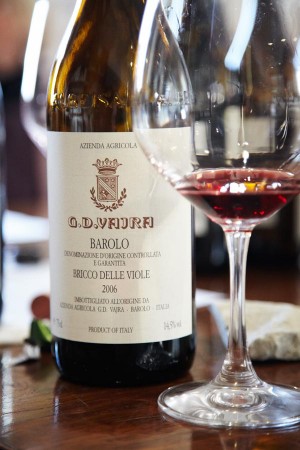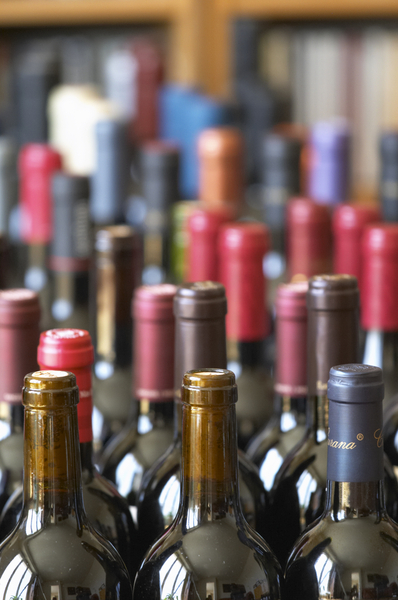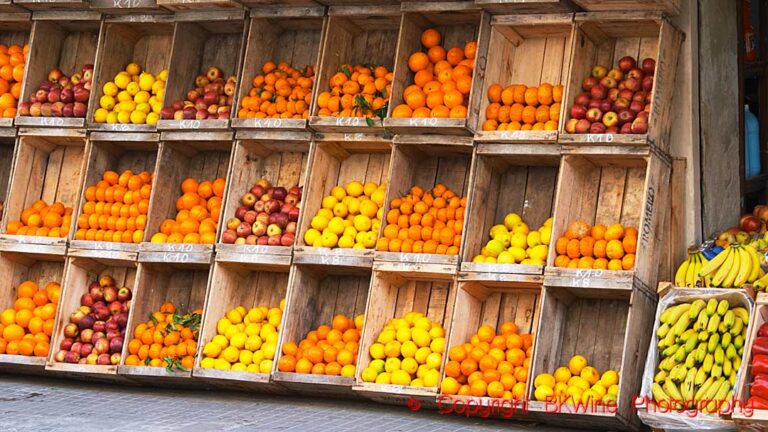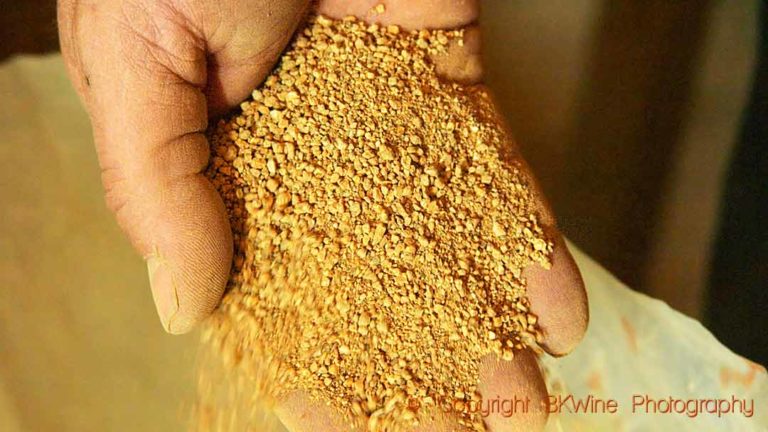Is it important or irrelevant with “disclosure” of free samples etc?
Sparked by a twitter discussion and by yesterday’s text on French wine bloggers I though it could (possibly) be interesting to bring up this issue with “disclosure” again. “Disclosure” is mostly interpreted as that when you write about a wine you say “I received this wine as a free sample”. It can also apply to other things, like sponsored trips to wine regions etc.
Especially in the US the reaction to this question seems to be “of course you must do disclosure”. I believe that there is even a law that stipulates that it must be done (for wine blogs, but not for wine magazines or other things than wine if I remember correctly).
In my view the question is more subtle and the answer is less obvious.
What’s the point?
The first things to think about is perhaps: “What is the point with disclosure?” and, “What effect will it have?”
The simple answer to this is perhaps that disclosure takes away any risk of perceived corruption. By “disclosing” the writer can be taken more seriously and can be seen as more trustworthy.

But is this so?
Let’s say that you write a disclosure when you do a wine review: “I received this wine as a free sample”. What should the reader make of that?
#1. Should the reader think like this?: “The writer received the wine as a free gift so I can not quite trust his judgement on this wine. He is probably biased since the wine was given to him so the review is more positive than what it would have been otherwise.”
#2. Or should the reader think like this?: “I trust the writer on this review even though he received the wine as a free sample. The review is still relevant although the wine was a gift.”
If you go with the argument #1 then I would ask: can you at all trust that writer? If his objectivity is so easily biased by a free sample, can you really trust him to have any good judgement in any other situation?
If you go with the argument #2 then I would ask you this: If you do trust the writer’s judgment and is reasonably confident that he does not give a positive review just because the wine was a gift, then what difference does a disclosure make?
It is all about writer ethics
In my view disclosure is next to irrelevant. It does not hurt to have it but it really does not serve much useful purpose. Either you believe that the writer is trustworthy, unbiased and follows good journalistic ethics. And then disclosure makes no difference. Or you don’t trust the writer’s ethics. And then a disclosure doesn’t make any difference either really since you are rarely “ethical sometimes”.
So, my conclusion is this: Disclosure is unimportant. What counts and what is important is the writer’s personal and journalistic ethics.
Yes, it makes things more difficult, because you have to make your own judgment about the writer and his trustworthiness. But who said that there should be any easy solution?
What do we do in practice at BKWine Magazine?
Here are our own ethics and disclosure principles: Disclosure
You can find it in the menus under About > BKWine Magazine.
Sometimes we do write a disclosure and say “we received these wines as samples”, “this article is based on a trip sponsored by XYZ”, or “this is a report from a tasting organised by ABC” or similar. But just as often we don’t.
Either you trust that we write truthfully or you don’t. A disclosure statement will not make any difference for that.
In reality, all professional wine writing relies on free samples, free tastings, free discovery trips to wine regions etc. You would have virtually no professional wine writing at all if you would refuse all that. Anyone wine writer who says he does not do that is not truthful.
That is no different from any other kind of journalism. Do you think that sports journalists pay their entry tickets?
So do we get lots and lots of freebies?
In reality we actually get very little free stuff. Here are the main categories.
Free wine samples
We get wine samples very rarely. Less (far less) than once a month. This is unfortunate and we would like to get more because it will allow us to report on more wines. (Wine producers take note: We are happy to receive samples! ; – ) )
Free wine tastings
This is the most frequent “benefit” we get. There are quite often wine tastings organised by marketing organisations, wine importers, wine regions or even wine producers that we go to. Very useful. Sometimes they lead to an article, sometimes not. But they are always useful as a part of ongoing development and education.
Free wine trips
It happens but it is rare that we receive invitations to press trips. They are invariably very useful but you have to take into consideration that it was a sponsored trip if and when you write about it.
The big benefit we have at BKWine is that we are also a wine tour organiser so we arrange a lot of wine tours ourselves, and can then choose both the destinations and the wineries we visit independently. Very few wine writers have that luxury. All in all we visit some 200 to 300 wineries every year.
I guess that one reason for that we get relatively few freebies is that we “fall through the cracks” (or “between two stools”). We are not part of the French wine establishment, we rarely write in French media, so people here in France generally ignore us (although we are part of the French wine writers association, APV). Nor are we part of the Swedish wine writers’ clique; we are far away from Sweden (based in Paris) and we are not members of the Swedish wine writers association. And the other countries we don’t even need to think of.
Conclusion
So now when you know that we do not systematically do disclosure, do you trust our writing any less?
What is your view on the issue of disclosure?










16 Responses
Claims about objectivity and journalistic ethics not withstanding, it is almost impossible for any human being to ignore subtle influences when doing something as subjective as tasting wine. Expectation is extremely powerful. Hence objectivity needs to be built into the structure of a proper wine evaluation.
Let’s take two extremes, and realize most of this debate will fall somewhere in the middle: (1) I taste twelve wines blind, and write up my impressions of the winner before I know its identity ~ then I flesh out the blog with additional information afterward; (2) I write up my impressions of the wine while I sit at the dinner table, having great food, listening to the winemaker tell me how great the wine is, and always has been, before he picks up the check.
The ONLY valid opinion which can be reached in circumstance #2 is whether or not I like the winemaker. In circumstance #1, ANYONE can reach a valid conclusion.
Good points. I have always wondered how people can take any serious tasting notes (that are supposedly relatively objective) over dinner. On the other hand, one is always influenced by circumstances, even in “neutral” environements. If you have met the winemaker you are for instance influenced by who he/she is.
Which, to come to the point, makes the simplistic ‘disclosure’ of “this was a free sample” even more meaningless. There are so many more factors involved than just if the bottle was “free” or not that has an impact, so what importance does that little detail have?
BTW, noticed you claim to supply “objective wine information”. Indeed either impressive or boring. ;-)
I taste wines both that I buy and are sent to me as samples. I do not taste the wines blind, but strive for integrity, consistency and objectivity. Michael Bettane, the respected wine critic, has said, “The aim of judgment is truth and impartiality.” There are two main reasons for not tasting blind. First, I prefer to evaluate the wines in the same manner that the consumer experiences them. Second, an essential part of evaluating wine is to know what you are drinking. I don’t give scores, preferring a concise description of the style and quality of the wine that the reader can appreciate and use. I am convinced that an apropos description is not only more challenging to arrive at, but is the fairest way to judge a wine. In the end, I always keep under my wing the tenant written by noted New Zealand winemaker, Neil McCallum, namely, “The difficult art of wine tasting requires a considerable measure of humility.” I do not disclose the source of the wines reviewed, but I do disclose if they were reviewed at the winery or a wine dinner or other site other than my home tasting base, giving the reader a perspective.
Sounds like reasonable principles. Perhaps it would make more sense to disclose the context on the wine tasting instead of disclosing if it was a free sample or not?
If you are an honest wine taster (honest to yourself and to your readers) then it is much more likely that your judgement is influenced by the fact that you are tasting over dinner (less reliable) or at the winery with the winemaker (most likely some positive vibes, or negative, from the personality) rather than influenced by the fact that the bottle was a gift or not.
‘Objective’ is one thing. Having a ‘point of view’ is another matter
altogether.
In advertising material for our San Francisco classes I emphasize our ‘objectivity’
because so much wine ‘education’ in America is actually conducted by
wineries, distributors, and retailers. That is not us. I do not
believe one should call it ‘education’ if one owns an inventory of the
wines being tasted. I think that circumstance should be called ‘promotion.’
‘Point of view’ on the other hand, is the process of letting my
personal preferences and prejudices show in as colorful and
entertaining a manner as possible. Therefore it is twice as important
to arrive at a quality evaluation objectively (through blind
comparison) BEFORE bringing my ‘point of view’ forcefully into play.
Absolutely. I agree. I understand the point very well.
I came at it from another point of reference and that made my comment sound odd perhaps.
I am originally from Sweden and there they have a monopoly on alcohol retail. Government owned. Since it is a monopoly the retailer cannot promote any specific brands or wine producers. they have to be neutral and “fair” towards all the wines on their list. This means also for example that their product information (details on wines for example) tend to be bland and rather boring. Because it has to be monopoly-neutral.
Since you have to be “objective” and brand-neutral how can you then recommend anything in particular if a customer asks for advice? Well, you can’t, so that objectivity falls apart in the shop and becomes subjectivity.
But that has nothing to do with your situation so apologies for my comment that was not intended in the way that you perhaps read it.
“That is no different from any other kind of journalism. Do you think that sports journalists pay their entry tickets?”
Very very good point. I receive very little “free stuff” as well. But I do disclose as much as possible out of respect to the winery. I’m sure they do not want to deal with any fines or issues of conflict of interest.
But there does seem to be some issues with fairness, especially with food writers and restaurant critics. Oh well…
I’m actually not that concerned about regulations (viz. fines), FCC rules etc. Saying “have to do it because the FCC says so” is to avoid the question. Laws are different in different jurisdictions.
What’s really interesting is the logic and reasoning for it and the ethics question.
The ethics questions of “whether a blogger should disclose or not?” Is that what you’re referring to?
I’m not sure if that alone is the “ethical” issue in question, at least for me. I’d be more curious, as a reader, whether or not the blogger is giving a positive review of the wine simply because they got it for free, which would be even more of an issue if they didn’t disclose.
That (your firs phrase) is not what I mean.
It’s more the second part of your comment that I see as “ethics”: do you give an honest and truthful comment on the wine disregarding if the wine was paid for by you or not.
If you give a positive comment just because you had the wine for free, then you are corrupt and not ethical.
If you judge the wine the same disregarding if it was free or if you paid for it then you are (more) honest.
(albeit an exaggerated and polarised way of expressing it)
This blog post appears to twist itself into a logical pretzel in order to arrive at its conclusion that disclosure doesn’t matter.
How can you say disclosure is irrelevant and then also say it’s up to the journalist’s own ethical compass *and* the reader’s ability to trust the writer? When a reader trusts a journalist it’s because that person has credibility that has been built up over time. How does this credibility come into existence? Through accurate reporting and giving full disclosure of circumstances. If a reader doesn’t have anything to go on, how can they trust the writer?
Free samples are a common thing in the wine world and, even though the number I’ve received can only be counted on one hand (I prefer to attend organised tastings), I will not deny that sometimes it is necessary. But a free sample is not the point we’re arguing about. It’s the free trips, hotel rooms and other items of significant value that are important.
Disclosing all of these details are important. Journalists in North America (where I did my training) have certain ethical standards driven into them from educators and colleagues alike. You may not think it’s important, but for a lot of people it is essental information.
“Disclosure” only gives a semblance of “honesty” or transparency. One of the problems with it is that writers and readers are tempted to think “disclosure has been done, then writer ethics have been taken care of”. That is not the case. Disclosure is just a minor (if at all) point in writer ethics.
Thinking that “credibility” is the result of making “disclosure” is, in my view, naive. (And that is also one of the problems with disclosure, it is just too easy to think that it is equivalent to ethics.)
Credibility comes from a track record of reliable, authoritative and unbiased writing.
You say you go to organised tastings. Well if you do, do you disclose that to? It is also a freebie (unless you pay for your attendance). Tasting at a winery, lunching with a winemaker etc etc. That’s free products or services that logically should also be disclosed.
And I fail to see any point at all in making a once-yearly disclosure statement. It will be seen by virtually none of the readers of the reporting on the site, since most visitors come to a site through search engines, or through the menus on the site. If it is to make any sense at all it should be done in connection with every single article where it is relevant.
In some ways I have nothing against disclosure. If you want to do it, fine. But I don’t see the point. I can’t see a reader thinking “I’ll take this article as biased and unreliable, because of the disclosure, but I’ll trust the same writer with honest reporting in other articles”. I just don’t see it. Either the writer is honest and ethical or he is not. I can’t see myself *sometimes* trusting a writer that I judge dishonest or biased at other occasions.
The big problem with disclosure though is, as I said initially, that it is tempting to think “the disclosure is done and dusted, then all is fine with honesty and writer ethics”.
It’s not.
What counts is writer ethics.
Sure, disclosure in itself does not necessarily mean the person is not biased or impartial. But it provides the reader with what I believe to be valuable information.
This debate got me thinking a lot about freebies and the ethics surrounding them. And while I’ve believed myself to be an honest, ethical person, I also realise there have been times when did not do a good enough job to explain what was free and what was not.
While the number of actual freebies and free samples I’ve received in the wine world is fairly minimal (just a few, really), there have been a couple dinners and a few organised tastings that fall under this category. In any case where the wine or food was paid for by someone else, I have inserted a disclosure statement into the article if it didn’t already exist. Despite this, I’d like to think what I wrote was fairly honest (if I didn’t like I wine, I said so, for example).
That all said, I still think disclosure is important, but it’s better to do it in the article in question, not simply at the end of the year, because that is where most readers will see it.
If anything, this has been a good chance for me to review and refresh the ethics I follow in my line of work.